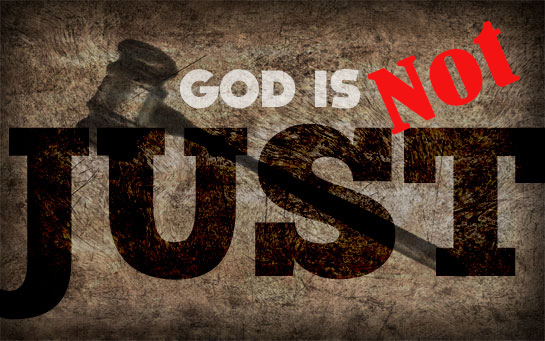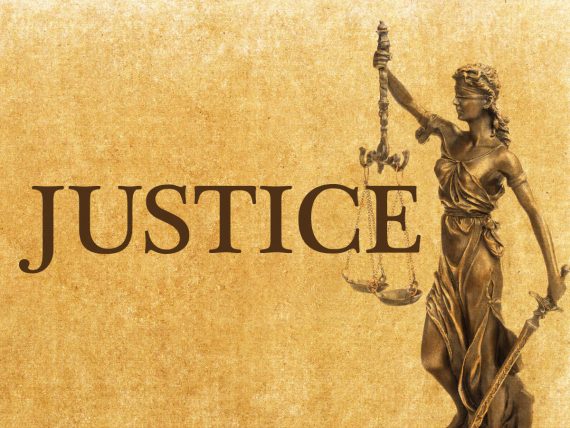I am returning to verse-by-verse studies through books of the Bible. We begin in this podcast episode with Ephesians 1:1. The episode also contains a brief discussion of the humanitarian crisis at our southern border, and also a question from a reader about how to understand the violence of God in various biblical passages. Listen to the podcast for these two sections.
Here are some brief notes on what I explain from Ephesians 1:1
The text says this:
Paul, an apostle of Christ Jesus by the will of God, to the saints in Ephesus, the faithful in Christ Jesus. (Ephesians 1:1)
The author of the letter, of course, is Paul.
 First, he is an apostle of Christ Jesus. An apostle is one who is sent by God with a message to those who have not yet heard the good news. It should be noted that there are no more apostles today. We have all probably heard of apostolic churches, and men or women claiming to be apostles of Christ. The Catholic Church claims that the authority of the Pope is based on apostolic succession.
First, he is an apostle of Christ Jesus. An apostle is one who is sent by God with a message to those who have not yet heard the good news. It should be noted that there are no more apostles today. We have all probably heard of apostolic churches, and men or women claiming to be apostles of Christ. The Catholic Church claims that the authority of the Pope is based on apostolic succession.
But all of these teaching are wrong. Let me show you why. One of the requirements to be an apostle is to have personally seen and heard Christ (1 John 1:1-3), and to have witnessed His resurrection (Matt 28; Luke 24; Acts 1:22; 10:41; 1 Cor 9:1; 15:4) and ascension (Acts 1:9-13). An apostle was one who was hand-picked by Jesus for this office. Paul was an apostle, but as one abnormally born (1 Cor 15:8-9). He was the last apostle chosen by Jesus for this office.
Since all of these events are not repeatable—someone alive today was not present when Jesus was alive, or saw Jesus after He rose from the dead, or watched Him rise into heaven—then there are no apostles today. They are irreplaceable by any subsequent generation.
Scripture bears this out as well. There are almost eighty references to apostles in Scripture, and nearly all of them refer to either the Twelve Apostles, or to Paul. All of the other leaders in Scripture are known as ministers and fellow laborers, but not apostles.
We’re going to see later in the book that there might still be the spiritual gift of apostleship, but this gift is not to be confused with the office of apostle. Those with the gift of apostleship today we most often know as missionaries to unreached people groups. To clear up confusion, we don’t call them apostles. Instead, we call them missionaries. But more on that later.
So Paul’s first source of authority is that he was an apostle of Jesus Christ. He was set apart, chosen by God, to be sent with the message of the gospel to the Gentiles. This is what God called him to do. Secondly, he was an apostle by the will of God. This is not something he took upon himself. This is not something Paul earned. It is something God called him to be and do.
Paul is writing to the church in Ephesus. And here we have two characteristics for the believers in Ephesus.
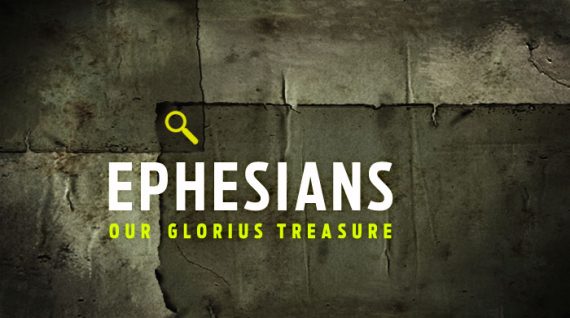
He first calls them saints. The word “saints” in the Greek is hagios. It literally means “holy ones.” Saints, or holy ones, are those who are set apart for God’s use. When we think of saints, we often picture statues in cathedrals, stained glass, miraculous appearances, and mystical encounters.
We get most of these ideas from the Catholic Church. The Catholic Church has a practice of “sainting” dead people who obtained a certain level of holiness during their life and who have at least two verifiable miracles to their credit. So in the Catholic Church, very few become saints.
 A while back as they were considering sainting Mother Theresa, I read this about her:
A while back as they were considering sainting Mother Theresa, I read this about her:
All of India, and much of the Catholic world, has been buzzing about the presentation to the Vatican this week of the case of an Indian woman said to be the recipient of Mother Theresa’s first miracle—a significant step toward Theresa’s canonization. Monica Besra, a mother of five, tells TIME that on September 5, 1998—a year to the day after Theresa died—she was writhing in pain from an abdominal tumor at a home, run by the Missionaries of Charity. ‘There was no way any doctor would have operated on me at that hour,’ she says. ‘So the nuns just started praying and kept a Mother Theresa medallion on my stomach. The pain subsided, and the tumor vanished.’ Episcopal Bishop Salvatore Lobo, head of the team that will deliver 35,000 pages of Theresa’s good deeds to the Vatican, says, ‘This miracle meets the requirements. It is organic, permanent, immediate and intercessory in nature.’ A second miracle is still required for sainthood.
Is this the way it works? To become a saint, do you not only have to have an impressive list of good deeds—35,000 pages worth in this case—but also at least two miracles to your name? No, Scripture everywhere tells us differently. And right here in verse one is one of these places. These saints in Ephesus were alive, not dead, and it is clear that they had never performed any miracles.
Paul shows us here and elsewhere (Col 1:2; Php 4:21; 1 Cor 1:2) that all believers are saints. He is not writing to a few of the spiritual elite within the congregation. To Paul, a saint was anyone who had believed in Jesus.
So he is writing to all Christians—and here he calls them saints. In fact, this will be a favorite theme of his in Ephesians. He refers to “saints” nine times in this letter (NASB: 1:1, 15, 18; 2:19; 3:8, 18; 4:12; 5:3; 6:18). All Christians are saints—even if we don’t act like saints, even if we don’t perform miracles.
So when Paul shows that he writing to the saints in Ephesus, he is right away showing them one of the blessings they have in Jesus. Paul is writing to the saints of God in Ephesus. And I, in turn, am sharing this letter with all the saints that are here today. If you have believed in Jesus Christ alone for eternal life, you are saints!
How do you think of yourself? We should see ourselves as sinners and in need of constant grace and mercy of God, but over and above this, we need to see ourselves as saints. When we all begin to see that in Jesus Christ, we are saints, I believe we will begin to act like it.
Paul was an apostle, set apart, chosen by God for a task. Saints are also set apart, chosen by God for a task. What task? As we study through Ephesians, we will find out. So Paul is first of all writing to the saints in Ephesus.
But also, Paul is writing to the faithful in Christ Jesus. This is the second characteristic of the believers in Ephesus. The church in Ephesus, as we have seen, was one of the strongest and most mature churches that existed at that time. So Paul is praising them here for that. He is saying, not only are you saints because you have believed in Jesus Christ, but even better, you are faithful saints. You have placed faith in Jesus, and you are standing firm in the faith.
 So, let me ask a question. Does this mean that there can be unfaithful saints? Can there be saints who do not act like saints? Can there be “sinning saints”? Saints who fail to live in obedience to God—but who are nevertheless still saints?
So, let me ask a question. Does this mean that there can be unfaithful saints? Can there be saints who do not act like saints? Can there be “sinning saints”? Saints who fail to live in obedience to God—but who are nevertheless still saints?
Of course! The church is full of them, and so is Scripture. To find examples of unfaithful saints in Scripture, one just has to read some of Paul’s other letters. Almost all the believers in Corinth were not living faithfully. In 1 Timothy, Paul mentions two unfaithful saints by name: Hymenaeus and Alexander (1:20). And in 2 Timothy 2:13, Paul tells us to be careful lest we become faithless.
But the saints in Ephesus were not like this. There were faithful saints in Christ Jesus. How did they become this way? Not by accident. Becoming a faithful saint is not something that just happens to you. You will not become a faithful saint simply by attending church on Sunday. No, faithful saints are made by discipline and hard work. Discipline in knowing who you are in Christ and what you are to do. Discipline in reading, studying and applying God’s Word to your live. Through discipline of prayer, of witnessing to others, and in living a holy life.
Becoming a saint is easy—all you have to do is believe in Jesus for eternal life. Becoming a faithful saint, however, is the most challenging but also the most rewarding, enjoyable and exciting thing you will ever do in life. There’s never a dull moment for the man or woman who is trying to become a faithful saint.
Notice also that Paul says they were faithful in Christ Jesus. This is a favorite term of Paul’s. Paul uses this term or one similar (in Christ; in Him) 164 times in the New Testament—and 36 of those (22%) are found in Ephesians. The term is rich with meaning and significance, and is a main theme in this letter.
As we continue to study Paul’s letter to the Ephesians we will continue to learn what blessings and riches you have been given as a saint in Jesus Christ so that you can learn to live as faithful follower of Jesus in this world. You will learn of your riches in Christ so that you can better fulfil your responsibilities in Christ.
Join us as we continue!
See a more detailed explanation of this text in the sermon on Ephesians 1:1-2 here.


 If you haven’t heard about what happened in the stock market this week with GameStop, AMC Theaters, Nokia, and a few other stocks, then you probably are listening to fake news.
If you haven’t heard about what happened in the stock market this week with GameStop, AMC Theaters, Nokia, and a few other stocks, then you probably are listening to fake news. The basic truth when it comes to defeating pornography and masturbation is to remember that God always loves and forgives you, and you are always accepted and welcomed by grace. Also, God is not nearly as upset or disgusted with your behavior and you are…
The basic truth when it comes to defeating pornography and masturbation is to remember that God always loves and forgives you, and you are always accepted and welcomed by grace. Also, God is not nearly as upset or disgusted with your behavior and you are…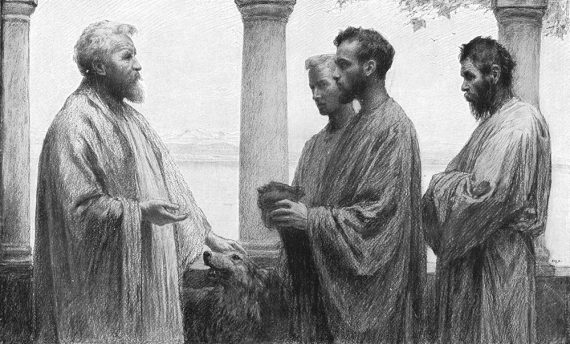
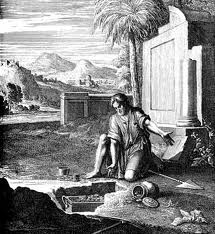
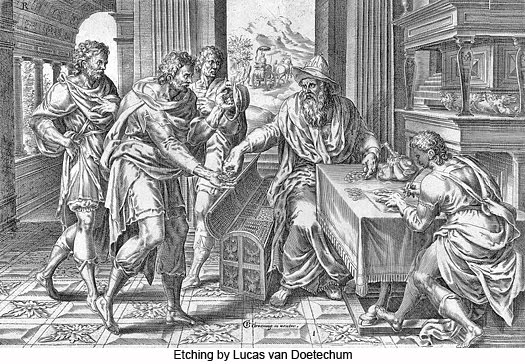

 Here’s the truth about politics. When it comes to politics, it doesn’t matter what politicians say … it matters what they DO. Many politicians lie. They say what they think the voters want to hear, and then when they get into power, they do the opposite. So I don’t really care if you think Trump was mean on Twitter or wasn’t the most polished speaker. All that matters is what he actually DID. And the facts speak for themselves. Take just two areas. Trump was the most pro-life and pro-peace president we have ever had. He is the only president in modern history to not start a war, but in fact, work to end them. He is the only president who took actual steps to end the slaughter of innocent, unborn babies. And since Jesus Himself is pro-life and pro-peace, these two factors alone mean that Trump was leading the nation in Christlike directions.
Here’s the truth about politics. When it comes to politics, it doesn’t matter what politicians say … it matters what they DO. Many politicians lie. They say what they think the voters want to hear, and then when they get into power, they do the opposite. So I don’t really care if you think Trump was mean on Twitter or wasn’t the most polished speaker. All that matters is what he actually DID. And the facts speak for themselves. Take just two areas. Trump was the most pro-life and pro-peace president we have ever had. He is the only president in modern history to not start a war, but in fact, work to end them. He is the only president who took actual steps to end the slaughter of innocent, unborn babies. And since Jesus Himself is pro-life and pro-peace, these two factors alone mean that Trump was leading the nation in Christlike directions. Anyway, since people made predictions about the Trump presidency when it began, let me make a few predictions of my own for what will occur under a Biden/Harris Administration. I will revisit this list prior to the next presidential election to see how I did.
Anyway, since people made predictions about the Trump presidency when it began, let me make a few predictions of my own for what will occur under a Biden/Harris Administration. I will revisit this list prior to the next presidential election to see how I did.
 Since wheat and darnel appear so identical, the presence of the tares in the field goes unnoticed until the grain begins to “go to crop,” or develop a head. This is why the servants only notice the tares once the wheat begins to mature (Matthew 13:26). So they ask the owner if he wants them to pull out the tares, but since wheat and darnel look quite similar to each other prior to full maturity, the owner tells his servants to leave the weeds alone and let them grow along with the wheat. At harvest, the reapers will go through and gather the tares, and then they can harvest the wheat (Matthew 13:30). The tares are thrown into the fire to be burned.
Since wheat and darnel appear so identical, the presence of the tares in the field goes unnoticed until the grain begins to “go to crop,” or develop a head. This is why the servants only notice the tares once the wheat begins to mature (Matthew 13:26). So they ask the owner if he wants them to pull out the tares, but since wheat and darnel look quite similar to each other prior to full maturity, the owner tells his servants to leave the weeds alone and let them grow along with the wheat. At harvest, the reapers will go through and gather the tares, and then they can harvest the wheat (Matthew 13:30). The tares are thrown into the fire to be burned. But if the servants are Christians, then who are the “sons of the kingdom”? Jesus says the seed is the sons of the kingdom. But if the servants are Christians, then the sons of the kingdom (the seed) cannot also be Christians. To put it another way, since the servants are the followers of Jesus, then this means that the sons of the kingdom must be someone else. And when we understand the identity of the sons of the kingdom, we will also understand the identity of the sons of the evil one (which might be better translated as “sons of wickedness”; Matthew 13:38).
But if the servants are Christians, then who are the “sons of the kingdom”? Jesus says the seed is the sons of the kingdom. But if the servants are Christians, then the sons of the kingdom (the seed) cannot also be Christians. To put it another way, since the servants are the followers of Jesus, then this means that the sons of the kingdom must be someone else. And when we understand the identity of the sons of the kingdom, we will also understand the identity of the sons of the evil one (which might be better translated as “sons of wickedness”; Matthew 13:38).


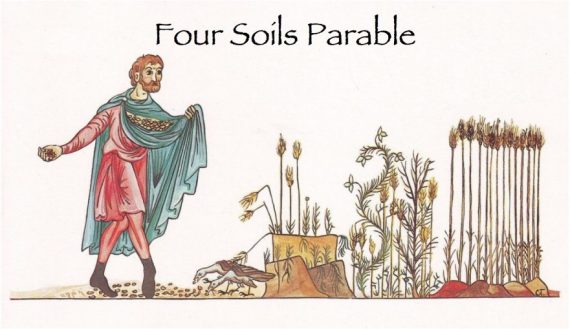
 Some simply do not understand it (Matthew 13:19).
Some simply do not understand it (Matthew 13:19). Indeed, it could be argued that those who teach such things belong in the first soil, for they have not even understood some of the most basic and introductory truths of the kingdom, which is that eternal life is freely and permanently given to anyone who simply believes in Jesus for it. This is one of the most joyful truths of the gospel!
Indeed, it could be argued that those who teach such things belong in the first soil, for they have not even understood some of the most basic and introductory truths of the kingdom, which is that eternal life is freely and permanently given to anyone who simply believes in Jesus for it. This is one of the most joyful truths of the gospel!
